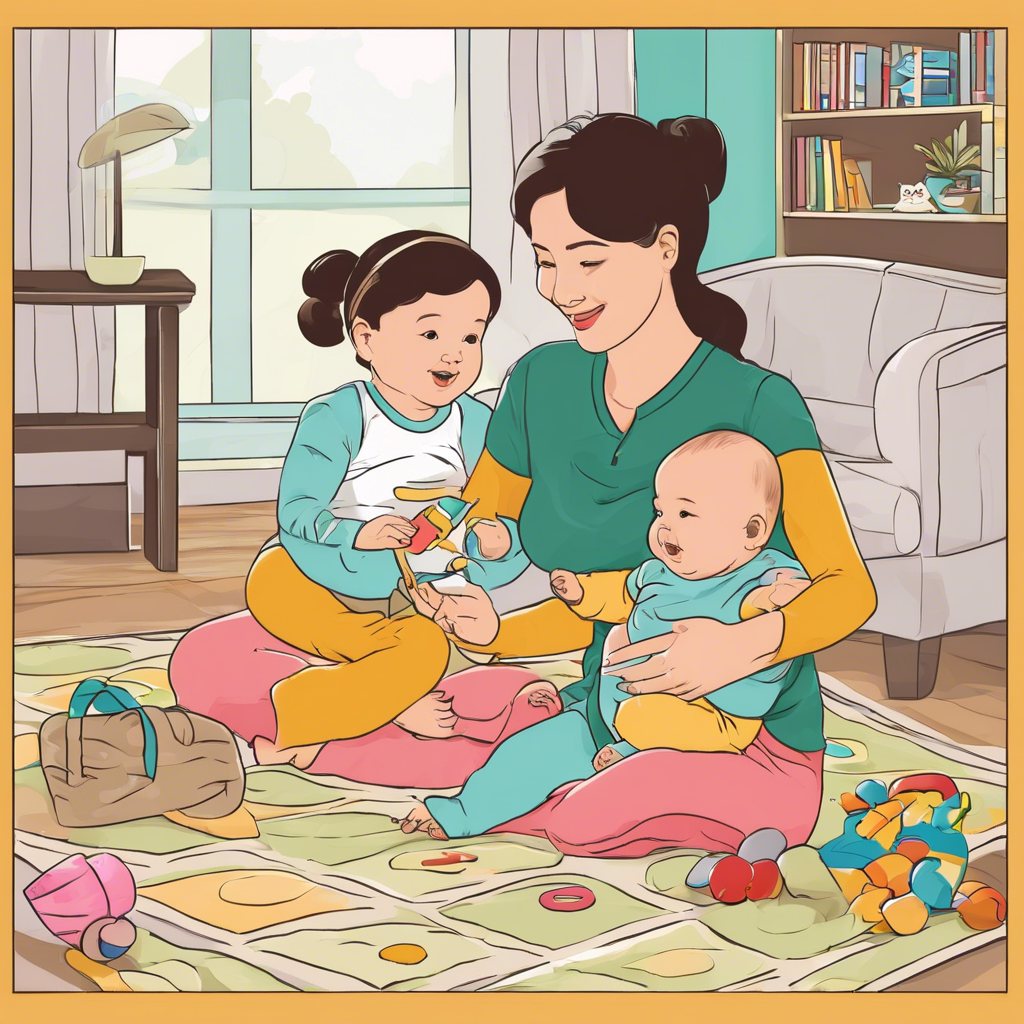Playing with your baby is more than just a fun activity—it’s a crucial part of their early development. Every smile, touch, and interaction helps shape their cognitive, emotional, and physical growth. Babies learn about the world through play, and parents have the unique opportunity to guide their little ones through this exciting journey. By incorporating different activities into daily routines, parents can nurture their child’s senses, motor skills, and social abilities while strengthening their bond.
From the moment a baby is born, their senses are developing rapidly. Sensory play is an excellent way to stimulate their brain and help them process new experiences. Tactile activities like letting your baby feel different textures—soft blankets, smooth spoons, and bumpy toys—enhance their sense of touch. Gentle tickling or a light massage with baby-safe oils can also provide soothing stimulation. Visual engagement is just as important; high-contrast black-and-white books or toys can help newborns focus and strengthen their vision. Playing peekaboo or showing them colorful objects can keep their attention and encourage eye coordination.
Talking and singing to your baby might seem simple, but it plays a vital role in their language development. Even if they can’t respond with words, they are actively absorbing sounds and learning patterns of communication. Narrating daily activities, like describing the color of their clothes while dressing them or talking about the food they are eating, helps build their vocabulary. Singing lullabies or playful songs with repetitive words improves their memory and speech recognition. Responding to their coos and babbles as if having a conversation teaches them about communication, turn-taking, and emotional expression.
Tummy time is essential for strengthening a baby’s neck, shoulders, and core muscles, which are necessary for crawling and sitting up. Making tummy time more enjoyable with toys, mirrors, or even lying down beside them encourages longer engagement. Placing a favorite rattle just out of reach motivates them to stretch and reach, helping develop their coordination. As they grow, simple movements like gently rolling a soft ball back and forth can improve their hand-eye coordination and motor skills. These small activities lay the foundation for later milestones like grasping, crawling, and eventually walking.
Music and movement go hand in hand when it comes to early development. Babies love rhythmic sounds, and moving to music helps develop their sense of balance and coordination. Holding your baby close while swaying to a soft melody or bouncing them gently to a lively tune provides sensory stimulation and comfort. Clapping hands or tapping their feet along with a song helps them understand rhythm. As they grow older, giving them baby-safe musical instruments like shakers or drums lets them explore sounds and cause-and-effect relationships. Dancing together creates joy while improving their motor control.
Reading to your baby is one of the best ways to foster early literacy skills. Even if they don’t understand the words yet, they are developing listening skills and learning about tone and rhythm. Board books with bold images, touch-and-feel elements, or lift-the-flap surprises make reading interactive. Pointing to pictures while naming objects helps them associate words with meanings. As they get older, allowing them to turn the pages or choose a book encourages independence and decision-making. Making storytime a daily habit strengthens their language skills and deepens the bond between parent and child.
Outdoor play provides valuable sensory experiences that indoor activities cannot replicate. Taking your baby on a walk in a stroller or a baby carrier exposes them to fresh air, new sights, and natural sounds. Letting them touch leaves, feel the breeze, or listen to birds chirping introduces them to the environment. If they are old enough to sit up, placing them on a soft blanket on the grass lets them explore textures and colors. Outdoor tummy time or rolling a ball in a shaded area helps with mobility while providing sensory stimulation. The natural world offers endless learning opportunities for a curious baby.
Bath time can be a delightful and stimulating playtime. Water play enhances a baby’s sensory experiences while helping them understand cause and effect. Splashing, squeezing soft bath toys, or watching water pour from a cup teaches them about movement and texture. Singing songs or making funny noises while washing them turns bath time into an interactive and enjoyable routine. As they grow, introducing floating toys or safe cups for pouring helps develop their fine motor skills. A relaxing bath before bedtime also creates a calming transition to sleep.
Exploring textures and grasping objects are essential for developing fine motor skills. Giving your baby different objects to hold, such as soft stuffed animals, crinkly paper, or silicone teething rings, strengthens their grip and hand coordination. Stacking soft blocks, playing with textured balls, or reaching for dangling toys helps develop their dexterity. As they start sitting up, offering baby-safe finger foods encourages pincer grasp development. Every interaction with a new object helps refine their ability to manipulate and explore their surroundings.
Everyday routines provide opportunities for play and learning. Diaper changes can become moments of bonding by singing or making funny faces. Mealtime can be an exploration of textures and flavors when babies are allowed to touch and feel their food. Simple games like gently blowing on their tummy or making exaggerated expressions encourage laughter and interaction. These small yet meaningful moments build trust and strengthen the parent-child connection.
Playtime is more than just entertainment—it is a fundamental part of a baby’s physical, cognitive, and emotional development. Engaging in different activities not only helps them reach developmental milestones but also strengthens the bond between parent and child. By incorporating play into everyday routines, parents can create a nurturing environment where their baby feels loved, secure, and ready to explore the world.

